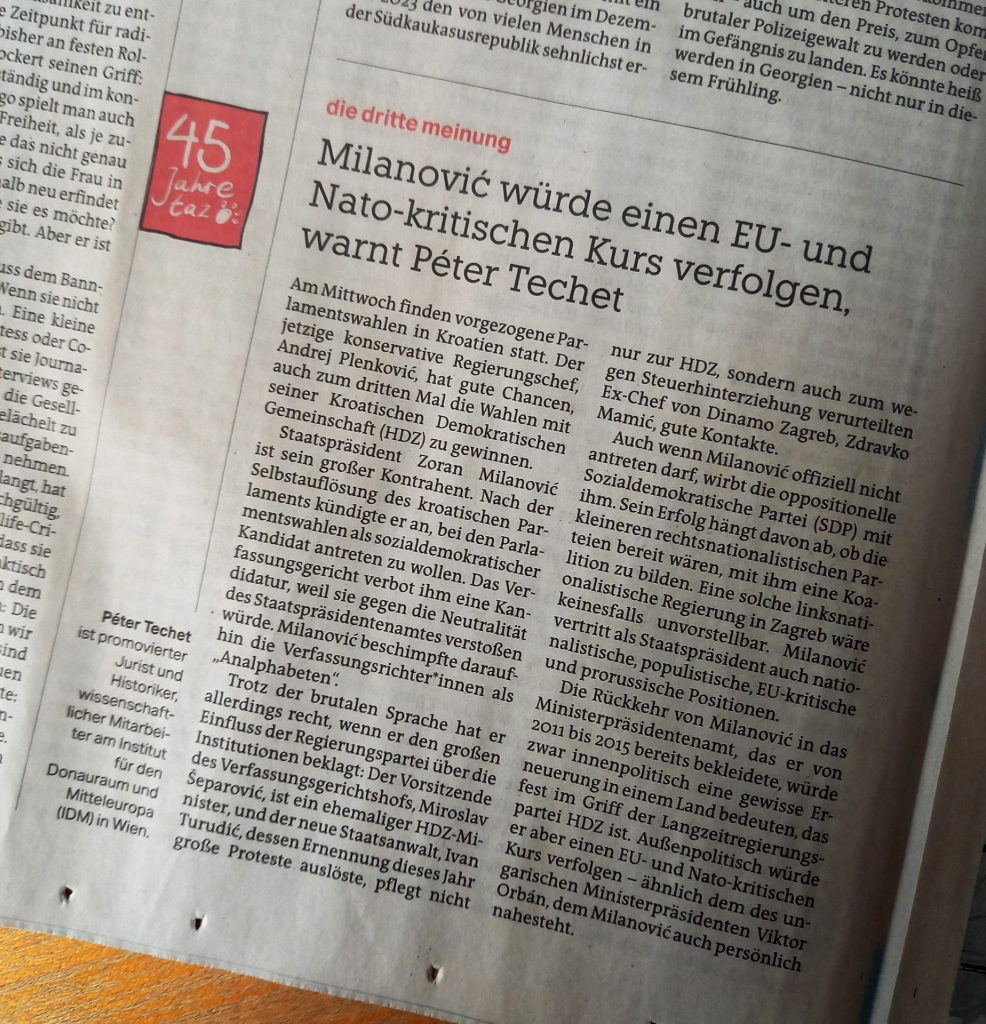
IDM Director Sebastian Schäffer spoke on the Arabic-language television channel Aharq News about the results of the European Summit held in Brussels on 21 March regarding the Russian war of aggression against Ukraine. The Saudi Arabian TV station also invited a speaker from Moscow, who started by expressing his frustration about his frozen pension fund with Citi Bank. Schäffer stated that it is interesting to hear that suddenly rule of law is demanded, while the Russian Federation has violated international law in Ukraine for more than a decade now.
The legal possibilities of using Russian frozen assets in the EU to finance weapons for Ukraine among other things is currently debated among the Heads of State or Government in the Belgian capital. There seems to be a broader consensus, at least among the German political parties, to use the interest resulting from those assets, which adds up to around three billion euros per year.
While it is only natural that decisions among 27 sovereign countries take longer, time is not on the side of Ukraine. However, the Russian Federation is not as united as the result of the presidential “elections” might suggest. Schäffer said that there are signs of the biggest manipulations in Russia for nearly 25 years. Vladimir Putin would of course still have won, but by a much lesser margin.
The guest from Moscow argued that the economy of the Russian Federation is strong despite the sanctions and has been transformed to outproduce the West; he also declared that the attacks on his country from Ukraine will only further unite the Russian population behind Putin. The IDM Director responded that this might be the case, but even with the uncertainty of the support coming from the United States and the possibility of Trump returning to the White House next year, the EU member states have at least started to recognise the need to do more. As the Estonian Prime Minister Kaja Kallas suggested, if every country provides at least 0.25 percent of its gross domestic product for military aid, the Ukrainians could outstrip Russia.
Schäffer further mentioned that with all the lamenting coming from Moscow, we should not forget that the Kremlin heinously attacks the civilian population in Ukraine each and every day, causing death and destruction. They are solely responsible and have to face the consequences.





















